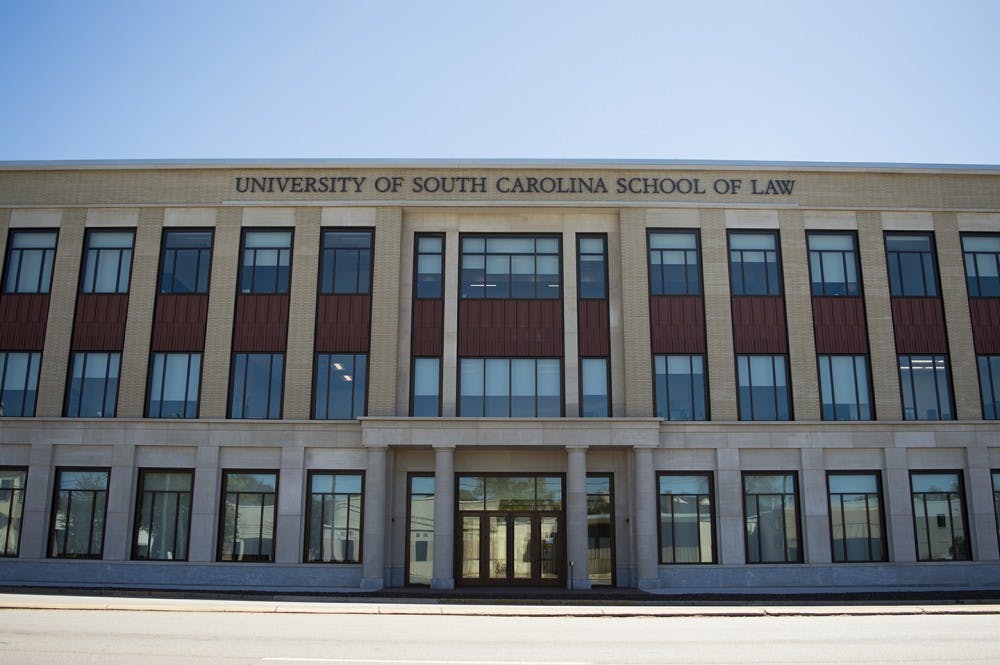USC School of Law professor Joseph Seiner's recent article, “Plausible Harassment," describes the prevalence of workplace harassment in the U.S. and some of the shortcomings of the U.S. court system in dealing with accusations.
Seiner said his research shows “anywhere from 25% to 75% of all working women claim that they have been harassed at some point over the course of their careers.”
However, only “somewhere around three to six percent of sexual harassment cases actually make their way to a trial,” according to Seiner.
Seiner said one issue is that courts often throw out cases before trial because the claims are not deemed plausible enough to continue, before alleged victims are able to acquire evidence.
“Given what we now know, you know, that 25 to 75% of women experience harassment, isn't that plausible, in any individual case for you to believe, you know, an allegation of harassment?" Seiner said. "My concern is that these cases are getting thrown out too early on.”
Seiner also said a lack of any specialized federal courts dealing solely with workplace harassment and discrimination means that cases are not given the attention and resources they need.
“There's pressure to get rid of cases that don't have a lot of merit. And so a lot of times, I think these cases will fall through the cracks where they otherwise shouldn't have,” Seiner said.
While public pressure has brought about awareness and promoted progress, “until there are actual financial, legal consequences to that behavior, you know, I think you're not going to see the type of change that really, I think we need right now,” Seiner said.
Seiner said the outlook for change in the court system is positive.
“I think it really just comes down to awareness. A lot of the courts — the extent to which this is going on, and that's what I was trying to help out with. And I'm hoping that this will spark, you know, more of a debate, both academically and judicially, of awareness that, you know, hey, this isn't the rare instance, that this — that this occurs," Seiner said.
Seiner said the allegations in high-profile cases like those against New York Gov. Andrew Cuomo can be applied to workplace discrimination at large.
“Those kinds of basic employment acts that are being alleged, those are very common,” Seiner said.
Seiner said he did not know enough about the allegations against several of USC’s faculty and staff members to comment on them.
“There are certainly signs that the university is taking the proper measures and doing some of the right things in terms of putting together. I think putting together a task force to look at it and trying to understand what the problem is, what they can do to resolve it,” Seiner said.
Prior to being a professor, Seiner spent over 20 years working labor cases for large corporations and the federal government. He continues to do research and write books and articles detailing his findings.
Colin Miller, associate dean for faculty development, said Seiner’s experience outside of teaching gives the professor a unique perspective when interpreting the law.
“He does a really nice job of incorporating his practical experience that he's gained on the job from being a lawyer, and also being able to anticipate where the law is headed based upon court opinions, so he does a really nice job of both assessing where the law currently is, but also predicting where it's going to end up,” Miller said.
“He’s a triple threat. He's a great teacher, he's a great colleague and he's a great scholar,” Susan Kuo, associate dean for academic affairs said. “My experience with him has always been positive, both in the hallway or while serving on a committee.”
Seiner said his interest in labor issues comes from the human element that is absent in other areas of the law.
“Unlike a lot of other areas of the law, you don't have the same emotions there that are attached to human relations and human resources. There's very few things — other than somebody’s freedom — that you can take away from them like your job that we really just so closely associate with our identity,” Seiner said.

